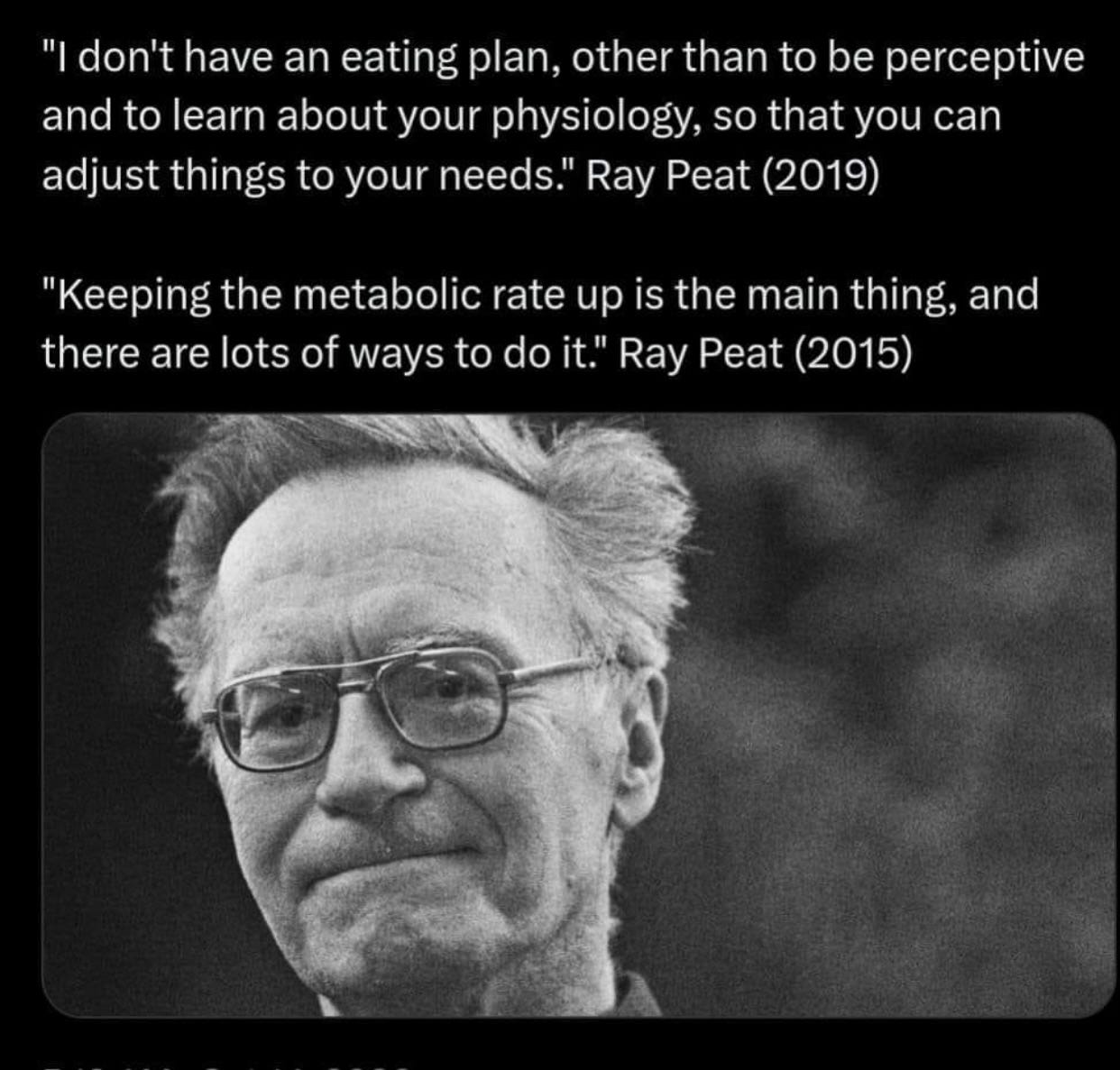Do Humans Need Some Carbohydrates for Optimal Health? Part 1
A response to Dr. Mercola, the Ray Peat Diet, and the bioenergetic theory of metabolism.
Dr. Mercola, one of the most widely-read alternative health doctors on the web, recently changed some of his beliefs on the benefits of low-carb eating and fasting. In 2017, Mercola published Fat for Fuel, his best-selling low-carb manifesto. Now, seven years later, he is calling into question much of what he previously believed, and doing it publically. This has left many people in the low-carb/fasting community feeling confused. Because I’ve received so many questions about this recently, I thought it was time to address this topic.
I’ve been following this debate closely since I firmly believe I can best defend the fasting/low carb position by fully understanding the criticisms.
One thing to note at the outset is that Mercola still acknowledges that fasting and low carb are beneficial in the short term to fix insulin resistance and diabetes. He is now only questioning the long-term benefits for people once they’ve regained their metabolic health.
Keep in mind that fasting/low carb is a tool, not a religion. There is no hierarchy of holiness such that those who fast the hardest and the longest and are the most low-carb or carnivore are the winners. I’m not at odds with influencers who used fasting and low carb or carnivore for a while and no longer need it. I think of fasting and low carb as an intervention similar to medicine—it’s helpful for the majority of Americans because they are metabolically ill. It’s not one of my goals to round up all the thin, healthy people and make them all fast starting today.
Mercola is a slim man, wiry even, and it’s no surprise that he may not need to fast for life as I plan to. However, Mercola is not just backing off fasting for himself, he’s calling it into question for everybody.
How Mercola Changed His Mind
Mercola changed his views after coming across the teachings of a researcher Dr. Ray Peat, who passed away in 2022, and a proponent of Peat’s teachings, Georgi Dinkov. There is a small group of people who use the term “bioenergetic diet” or “Ray Peat Diet” to refer to a type of eating that they believe stokes the metabolism.
What is the Ray Peat Diet?
First, Ray Peat didn’t give people a specific diet to follow. Others have come up with a diet that they believe is based on the principles he taught, and they named it after him.
There’s a question in my mind as to whether or not Ray Peat would agree with all the principles being promoted in his name. But whether or not he would, I’ll outline my understanding of the Ray Peat Diet and how the main points relate to what Ray taught.
What is the Ray Peat Diet? The truest version requires one to:
1. Cut out all PUFAs (poly unsaturated fatty acids, aka vegetable and seed oils) and replace them with saturated fat.
2. Avoid most raw vegetables and too much fiber as they can cause the overgrowth of harmful bacteria in the gut that produce endotoxin.
3. Get plenty of salt, protein, and gelatin.
4. Eat small amounts of fruit, fruit juice, or sugar throughout the day.
Somehow, the first three points often get lost in translation, and many Ray Peat social media posts simply encourage everyone to EAT MORE SUGAR ALL THE TIME. I personally think the first three points have a lot of merit. I’ll go into more detail about that at the very end of this post. I only take issue with the “eat more sugar” idea of the Peat diet.
Here’s where this idea to eat sugar came from. One of Peat’s main goals as a hormone researcher was to think of ways to try to resurrect the thyroid function of people whose thyroid was nearly non-functioning. (Unfortunately, this is many people, hence the millions of Synthroid scripts). He came up with the idea that having people drink orange juice around the clock would give the thyroid a fighting chance. His reasoning went like this: the liver uses glucose to make T3. Therefore, perhaps if we give the liver lots of glucose around the clock, this will help out the T3 production.
I agree with Peat that many forces are conspiring against the thyroid. I just don’t think sugar is the answer.
The Prima Facie Case Against the Sugar Part about the Ray Peat Diet
Keep reading with a 7-day free trial
Subscribe to Fast Well | Feast Well to keep reading this post and get 7 days of free access to the full post archives.




